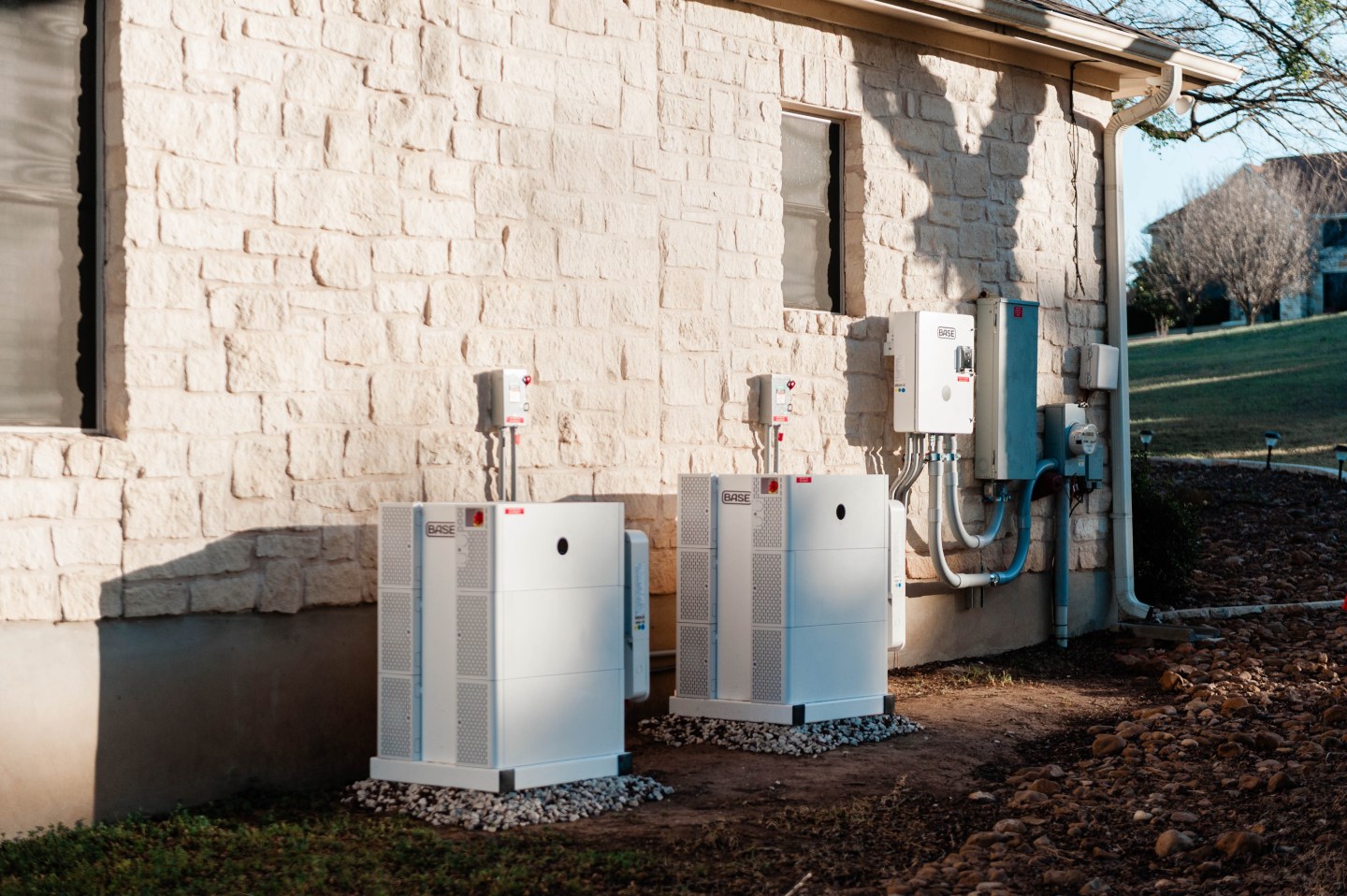Zach Dell watched his father Michael become one of the richest men in the world building a home computing and tech empire, and now he’s aiming to revolutionize the home electricity business with his Base Power.
Austin, Texas-headquartered Base, which just completed a $1 billion fundraising round in October, takes the “Costco membership” route by offering a one-stop shop for the home: electricity and a backup-power solution courtesy of a battery storage system, not a standard gas generator.
“We’re addressing a very acute problem that consumers face, which is that electricity has gotten more expensive and less reliable,” Zach Dell, 29, told Fortune. “It’s totally crazy if you think of all the things that have gotten better over the last decade, and our power has gotten noticeably worse. Batteries, paired with software and a unique business model, can make your power more reliable and less expensive.”
U.S. power demand is rapidly rising thanks to the AI boom and, when coupled with aging grid infrastructure and rising occurrences of wildfires and natural disasters, backup power is becoming more desirable for many homeowners.
Base’s business model offers standard retail electricity, a monthly membership fee of $19, and a leased battery system for a one-time cost of $695—as opposed to a whole-home, backup generator system that can cost upward of $15,000. Base customers may pay more per month because of the membership fee, which covers ongoing services and software battery power management, but they avoid paying the massive one-time cost of a whole-home generator system.
“We’re just dramatically more affordable. Do you want the Lamborghini or the [Toyota] Corolla?” Dell said. “We make a product that is reliable, it’s safe, it’s affordable. It’s really a mass-market product. The other companies in the space are selling a premium product to very wealthy folks. Our product is more designed for the mass market.”
His Dell Technologies founder and CEO father, Michael, is not involved in Base. Top investors include the venture capital firm Addition, Thrive Capital, Lightspeed Venture Partners, Andreessen Horowitz, Alphabet’s CapitalG, and many more.
Thus far, Base only operates in Texas, including the Austin, Houston, and Dallas regions. But Base, which was founded in 2023, is pivoting from startup mode to ramped-up growth mode, and the tentative plan is to begin expanding outside of Texas in 2026, Dell said.
“We have this big, fast-growing business in Texas,” Dell said, “but the long-term ambition is to bring Base to every household in America.”
Base Power has deployed over 100 megawatt-hours of residential battery capacity and is building its first battery factory in downtown Austin. A second factory is planned as well. The vertical integration model will further drive costs down over time, Dell said.
“The capital will really be used to invest in this vertical integration strategy and get to scale so we can deliver the most affordable product on the market,” he said. “This is our first-generation [battery] product. As we come out with new versions of the product, prices will go down because our economics will get better.”

Like father like son
While Michael Dell is not directly involved in Base, he does regularly offer business advise to his only son, who seemingly inherited the entrepreneurship gene.
“He’s an extremely valuable mentor” Zach Dell said. “I’m inspired by him not because of how much money he’s made or the stock price, but because of the joy it brings him to build something and to solve hard problems and work on interesting puzzles. I’m very lucky that I get to spend my days solving really hard and complicated puzzles with smart people.”
Zach Dell grew up in the Austin area before attending the University of Southern California. He dabbled in startups before joining Blackstone and then working at Thrive Capital. He started to study energy markets and saw the energy transition moving toward solar power coupled with battery storage.
Dell said Base is focusing on battery storage in part because the technology is advancing, it’s scalable, and it’s easy to install for homeowners. And the stored power in the battery keeps your home powered when outages occur. A second battery is offered at a deeply discounted rate for larger homes.
Prices are kept relatively lower because, when your power is working normally, the battery can store power and then provide electricity back to the grid when demand is at its highest. In the event of a prolonged power outage, Base customers can even buy a smaller, roughly $500 generator to power just the battery system if it runs out of juice on its own.
“With that integration, it’s effectively an infinite backup product,” Dell said.













